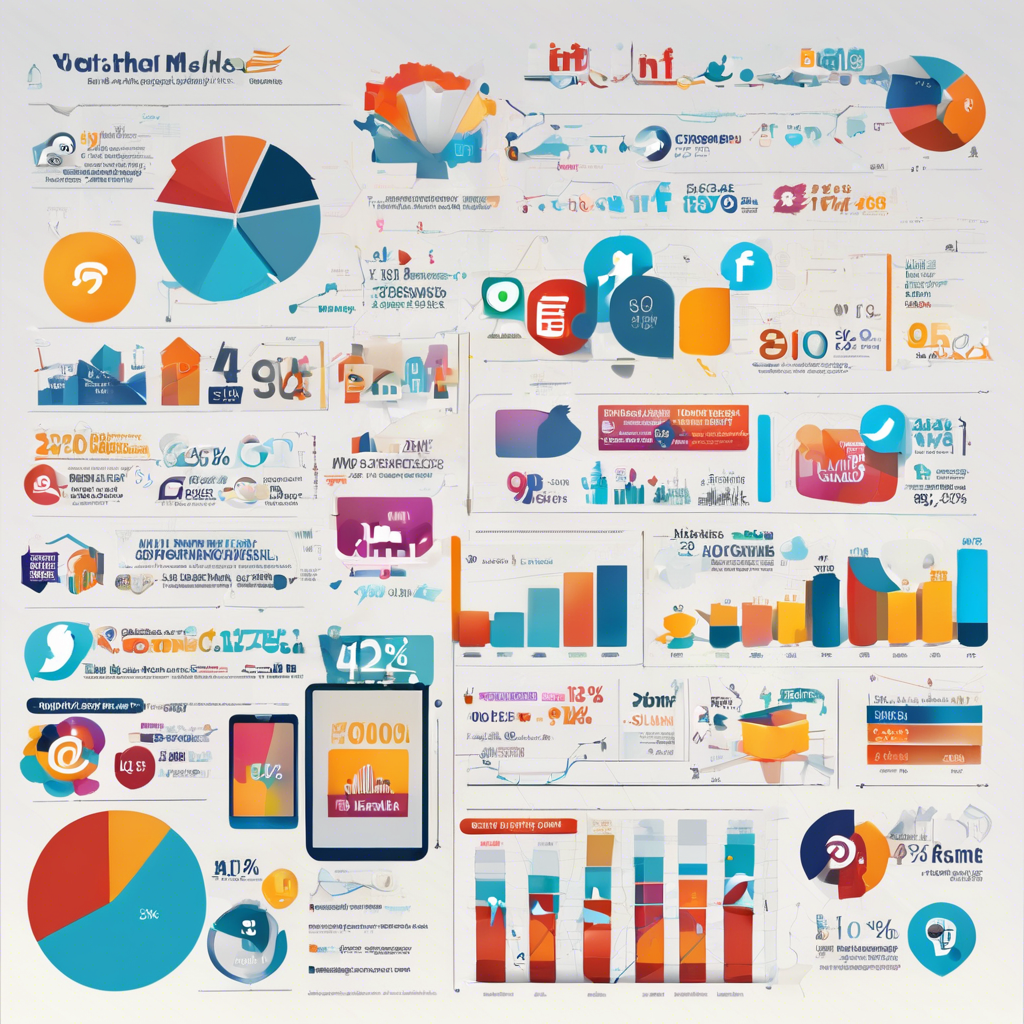Social media analytics play a crucial role in today’s digital landscape, providing valuable insights into user behavior, content performance, and overall social media strategy. With the vast amount of data generated by social media platforms, businesses and individuals can leverage analytics tools to optimize their online presence, track key metrics, and make informed decisions. In this article, we will explore the significance of social media analytics, the key metrics to monitor, popular analytics tools, and best practices for utilizing analytics to enhance your social media strategy.
Social media analytics refer to the process of collecting, analyzing, and interpreting data from social media platforms to gain actionable insights. By monitoring metrics such as engagement, reach, impressions, and conversions, businesses can evaluate the effectiveness of their social media campaigns and content. Understanding these metrics allows users to identify trends, measure performance against objectives, and refine their strategy for better results.
One of the key benefits of social media analytics is the ability to track audience engagement and interactions. Metrics like likes, comments, shares, and mentions provide valuable feedback on the resonance of your content with your audience. By analyzing these engagement metrics, you can identify the type of content that resonates most with your followers, allowing you to tailor your content strategy to drive higher engagement and build a more loyal following.
In addition to engagement metrics, social media analytics also enable users to track reach and impressions, which measure the visibility and exposure of your content on social media. Reach refers to the total number of unique users who see your content, while impressions represent the total number of times your content is displayed. Monitoring reach and impressions helps you assess the effectiveness of your content distribution strategy and identify opportunities to expand your reach to a wider audience.
Conversion tracking is another critical aspect of social media analytics, as it allows businesses to measure the impact of their social media efforts on driving desired actions, such as website visits, sign-ups, purchases, or downloads. By setting up conversion tracking and analyzing conversion metrics, you can attribute specific outcomes to your social media campaigns and optimize your strategy for better results.
To effectively leverage social media analytics, it is essential to define clear objectives and KPIs (Key Performance Indicators) for your social media strategy. Whether your goal is to increase brand awareness, drive website traffic, generate leads, or boost sales, having measurable objectives will guide your analytics efforts and help you track progress towards your goals.
When selecting social media analytics tools, it’s important to choose platforms that align with your objectives and provide the metrics and insights you need to measure performance effectively. Popular social media analytics tools like Hootsuite, Sprout Social, Google Analytics, and Facebook Insights offer a range of features for monitoring and analyzing social media data.
In addition to using dedicated analytics tools, most social media platforms also provide built-in analytics dashboards that offer valuable insights into your account performance, audience demographics, and content engagement. By regularly monitoring these native analytics tools, you can stay informed about your social media performance and make data-driven decisions to optimize your strategy.
A key aspect of social media analytics is competitor analysis, which involves monitoring and benchmarking your performance against competitors in your industry. By analyzing the social media tactics, content strategies, and engagement levels of your competitors, you can identify opportunities for improvement, gain competitive insights, and differentiate your brand in the crowded social media landscape.
Engaging with social media analytics can also help you identify emerging trends, monitor industry conversations, and capitalize on timely opportunities to enhance your social media strategy. By staying informed about trending topics, popular hashtags, and viral content, you can adapt your content strategy to align with current trends and engage with your audience in meaningful ways.
Incorporating social listening into your analytics strategy is another valuable practice, as it involves monitoring social media channels for mentions, keywords, and conversations related to your brand or industry. By listening to what people are saying about your brand, competitors, or industry trends, you can gain valuable insights, address customer feedback, and identify opportunities for engagement and improvement.
As social media continues to evolve, so do the metrics and tools available for analyzing and optimizing social media performance. Keeping up with the latest trends in social media analytics and experimenting with new tools and techniques can help you stay ahead of the curve and maximize the impact of your social media efforts.
In conclusion, social media analytics provide valuable insights and data-driven decision-making capabilities for businesses and individuals looking to enhance their social media strategy. By monitoring key metrics, tracking performance, and leveraging analytics tools effectively, you can measure the impact of your social media efforts, optimize your content strategy, and drive engagement and conversions on social media platforms. Stay informed, stay engaged, and leverage the power of social media analytics to achieve your social media goals.
